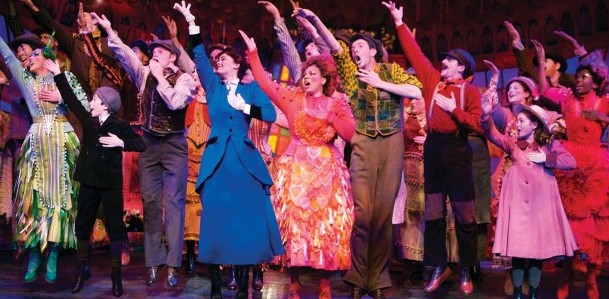

Casting Call for Storytellers
Salt + Light Media
Monday, December 10, 2012

This blog comes to us from Leanna Cappiello, a former S+L intern who recently graduated from Assumption University in Windsor, Ontario. Leanna is currently living in New York City, where she works as an intern at the Holy See Mission to the United Nations.
The first thing we were taught in secondary school theatre was how to tell a good story. Being a competent, compelling storyteller was always our first priority. It wasn’t until I had reached my final year of undergrad that I began to understand the real implications of this ideology, and how it pertains to Catholicism. In theatre, we have a phrase: “from page to stage”. We take text and make it come to life as a living, breathing performance. In the Gospel of John, we see how “the word became flesh” (John 1:14). Both phrases demonstrate that words can, and should be, brought to life. John English, author of Spiritual Intimacy and Community, says that “sharing our story is how we discover and communicate God’s presence in our day-to-day experience” (English 60). Stories make the intangible somewhat tangible.
For example, many scholars claim that Shakespeare’s plays, though written long ago, are timeless and ever-relevant. Some disagree, insisting that times have changed and the language, characters, and situations aren’t current enough. Many share the same opinion of the Church; that it’s too “out of date”, that it should “get with the times”. But even greater than the works of authors, the core lessons of the Church run deeper than society’s fickle trends. The issue is not with the works themselves, but rather the way they are presented. In the same way that Shakespeare’s works make more sense when enacted, our stories of faith when shared become witness. God came to earth as Jesus so He could better communicate his love for humanity. He didn’t just rely on the text of scripture to tell us that we were redeemed, He showed us with the crucifixion. He didn’t just say He was the King of Peace, He was the very embodiment of it.
The world has shown me that it’s full of passionate storytellers. While working in New York and living in New Jersey, I have seen and heard about many biblical and faith-filled stories come to life. Grade 8 students at St. Joseph of the Palisades Elementary School celebrated All Saints’ Day by dressing up as various saints, presenting anecdotes, and fielding questions for younger students. Theology on Tap with Ss. Peter and Paul’s young adult group in Hoboken provides a space and place where people gather to share personal narratives of faith formation.
In particular, C.S. Lewis’ piece, The Screwtape Letters, put on by Fellowship for the Performing Arts, left a lasting impact. It reminded us that being a dedicated artist and a committed Christian are not mutually exclusive. The Q&A session after the performance provided a time when the actors could further bridge the gap with the audience in reflection and discussion. In its newsletter, Creating Culture in The Fellowship Circle, FPA investigates the question, ”What does it mean for us to produce theatre from a Christian worldview for a diverse audience?” The organization recognizes that Christianity is often marginalized in the arts, and often not taken seriously in the industry. FPA challenges this stigma and produces “theatre that engages the imagination to the point where one is challenged to evaluate their assumptions about truth and reality.” The play holds outstanding reviews, and is currently being toured all over the United States.
Storytelling is a language the world already knows. Should we not use it to explore and communicate the Truth and mystery in the Word? As Catholics, we are all called to participate
---
The cast of Mary Poppins onstage at the New Amsterdam Theatre in New York, in 2007
(CNS photo/Joan Marcus)
Related Articles:
>>
SUPPORT LABEL
$50
$100
$150
$250
OTHER AMOUNT
DONATE
Receive our newsletters
Stay Connected
Receive our newsletters

Stay Connected









